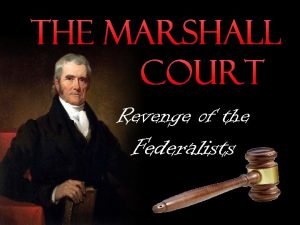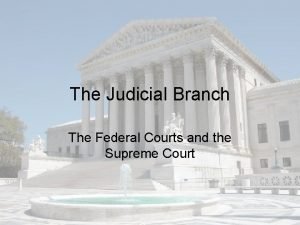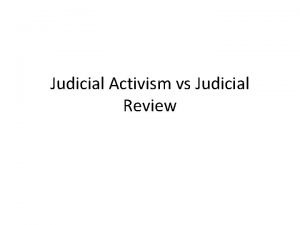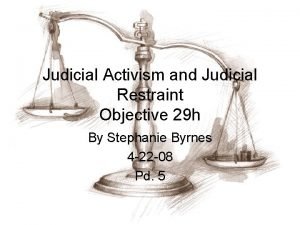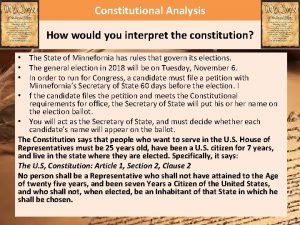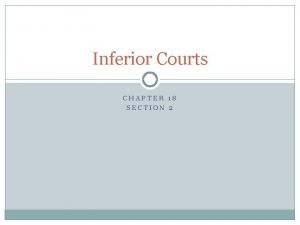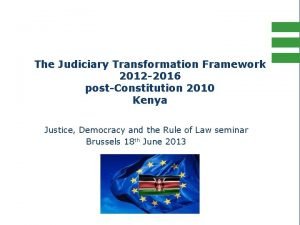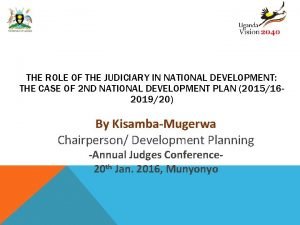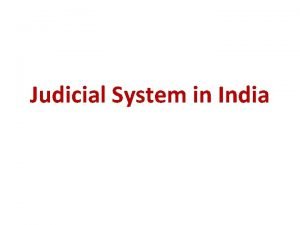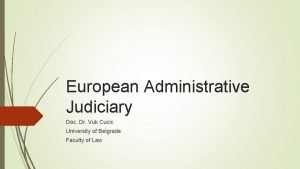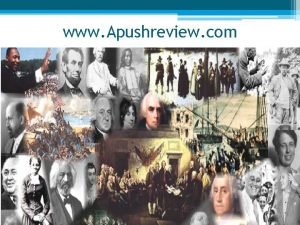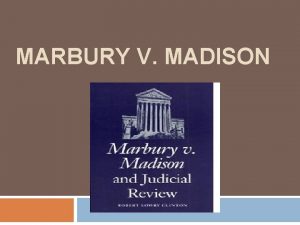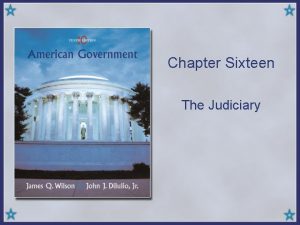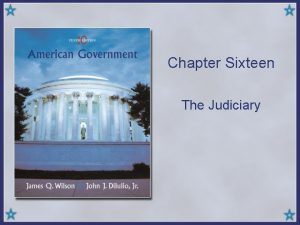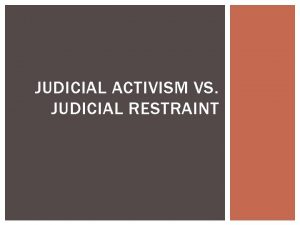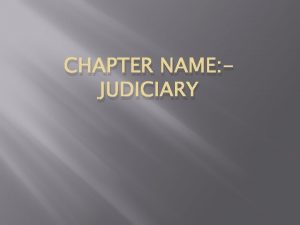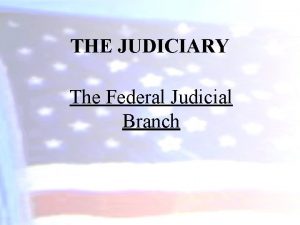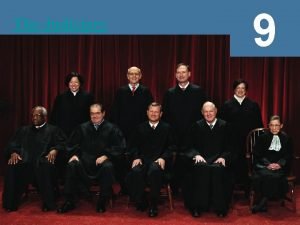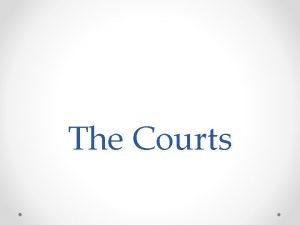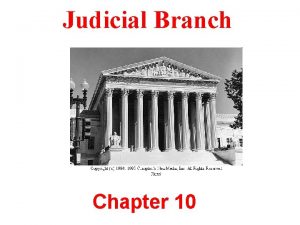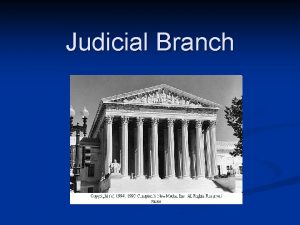Judicial Review Power of the Courts Judiciary Act













- Slides: 13

Judicial Review Power of the Courts

Judiciary Act of 1789 n n George Washington Created the Federal Court System and outlined the powers of the Supreme Court. Review cases already tried in the country n Determine if laws passed in Congress were unconstitutional n Check the actions of the Executive branch n

New Law n All individuals not born in the U. S. MUST return to their native country within a month. If necessary, force will be used to enforce the law. n n n What could be done if we didn’t like this law? How could we change it? What is the only part of our government that can overturn a law? How do they overturn a law? Does any branch have the power to force the others to do their job correctly?

Marbury v. Madison n n WHO: (P) William Marbury v (D) James Madison WHAT: As John Adam’s term came to an end, Adams made 58 last-minute government appointments in order to keep the Federalist influences in power. As Jefferson, entered office, one of those commissions, namely that of William Marbury was not being honored because he wasn’t given papers to take his office. Jefferson told Madison not to deliver the papers to Marbury sued Madison who was Secretary of State and asked the Supreme Court to issue a court order requiring Madison to deliver the papers so he can take his in office.

n n When and where: February, 1803 in Washington DC Summary: The case was heard in the Supreme Court. Marbury demanded the Supreme Court to force the executive branch to give him his job. According to Marbury, the Judiciary Act of 1789 gave the Supreme Court that power.

n n n COURT DECISION: The Supreme Court denied Marbury’s petition, holding that the Judiciary Act of 1789 was unconstitutional based on this interpretation. Overall Effects: Supreme Court said that court did not have the power to enforce the Executive branch into actions as stated in the Judiciary Act of 1789. Each branch of government is independent of the others and only a system of “checks and balances” exist to avoid abuse of powers. Each branch of government has limited power that is stated in the Constitution. This law suit gave the Supreme Court the power of judicial review.

James Mc. Culloch v. State of Maryland n n n Who: (P) James Mc. Culloch v. (D) State of Maryland What: State of Maryland had attempted to impede operations of a branch of the Second Bank of the United States by imposing a tax on all notes of banks not charted in Maryland. When and where: March 1819 in Washington DC

n Summary: When called upon to pay a $15, 000 tax, James Mc. Culloch, a cashir at the Baltimore Branch of the Second Bank of the United States, refused. He was convicted by a Maryland court and fined $2, 500. He appealed to the Maryland Court of Appeals and failed. He then appealed to the US Supreme Court.

n n COURT DECISION: Congress has “implied powers” necessary to achieve the powers expressly granted in the Constitution. Overall Effects: The ruling gave Congress the power to create a national bank, although the Constitution does not specify it.

Thomas Gibbons v. Aaron Ogden n Who: (P) Thomas Gibbons v. (D) Ogden What: Steamboat operations between New York and New Jersey. Regulation of interstate commerce on the river. When and where: March 1824 in Washington DC

n Summary: New York issues an injuction against Thomas Gibbons prohibiting his steamboat operations between New York and New Jersey even though he was federally licensed. His business was in violation of a state law that granted Aaron Ogden a monopoly of all steam boat operations in New York. Gibbons appealed to the US Supreme Court.

n n COURT DECISION: New York law was de facto interference with the federal regulation of interstate commerce and was unconstitutional. Waterways are controlled by the federal government. Overall effects: Federal laws have precedence over State laws; Abolished monopoly control over navigation and led to increase federal regulation of the economy.

Judicial Review n n n Definition: the power that the Supreme Court has to review acts of laws and already tried cases. Before: Marbury v. Madison – Supreme Court had very little power and was uncertain of their role in government NOW: the Supreme Court had power to check the other two branches of government to see if laws passed follow the Constitution and the actions of the Executive branch
 Whats the judiciary act
Whats the judiciary act Judicial restraint
Judicial restraint Judicial activism vs restraint
Judicial activism vs restraint Judicial restraint vs judicial activism
Judicial restraint vs judicial activism Judicial restraint vs judicial activism
Judicial restraint vs judicial activism Judicial activism vs judicial restraint
Judicial activism vs judicial restraint The inferior courts chapter 18 section 2
The inferior courts chapter 18 section 2 Judiciary transformation framework
Judiciary transformation framework Cohesive society and preserved identity
Cohesive society and preserved identity Department of judiciary
Department of judiciary Judicial hierarchy in india
Judicial hierarchy in india Vuk cucic
Vuk cucic Marbury v madison apush
Marbury v madison apush Marbury v madison judicial review
Marbury v madison judicial review
